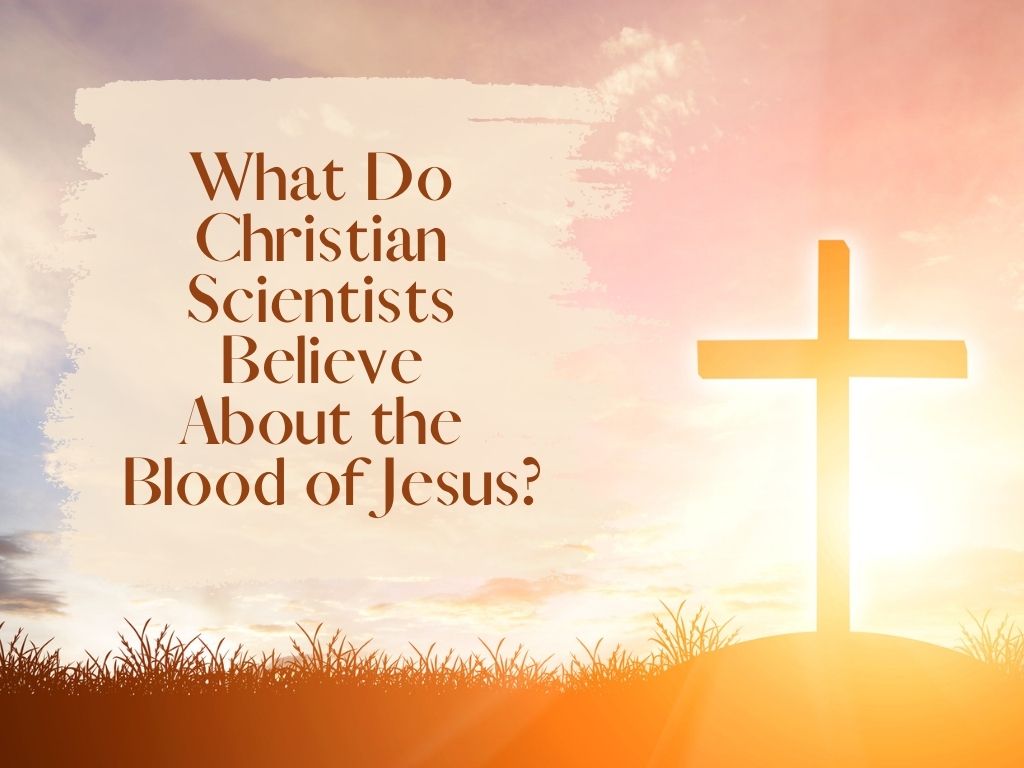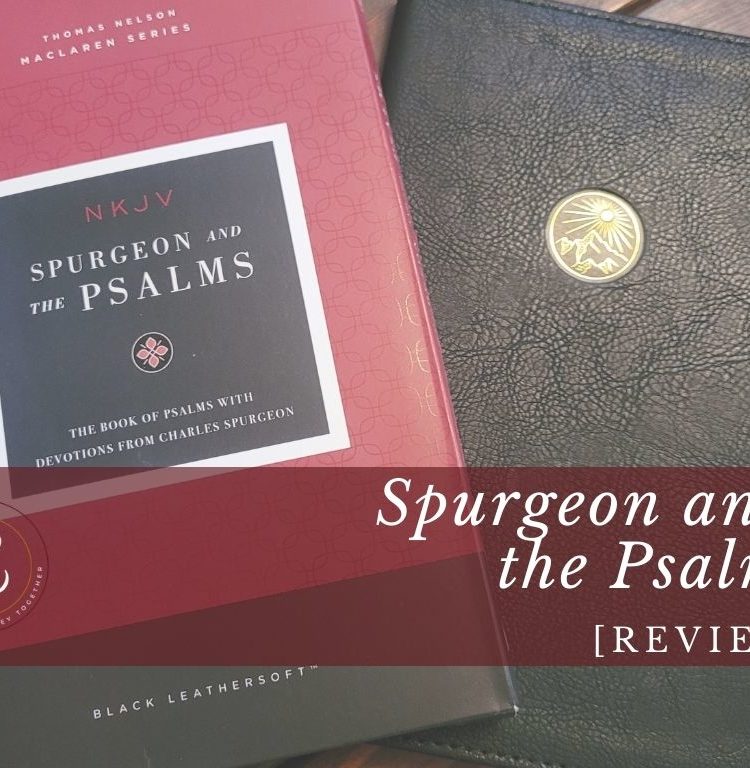On my drive to and from work, I began listening to KLOVE, a national Christian radio station. Freshly exposed to Evangelical Christianity through my new role as the public relations manager of a major Christian website in 2001, I thought I was a Christian just the “graduate school” version, as Christian Scientists would often say.
Periodically I would hear songs that would mention the blood of Jesus and I remembered feeling repulsed and disgusted by it. After all, I was taught in Christian Science that “man is not matter; he is not made up of brain, blood, bones, and other material elements.” (Science and Health, 475)
One day, a revamped version of the hymn, “Nothing but the blood” came on the radio:
What can wash away my sin? / nothing but the blood of Jesus;
I had been taught in Christian Science that sin, disease, and death were not real, so the thought of Jesus dying and literally dripping blood as he suffered on the cross seemed foreign and offensive. To Christian Scientists, Jesus was a good teacher who exemplified the highest idea of man.
Mary Baker Eddy states, “Jesus taught the way of Life by demonstration, that we may understand how this divine Principle heals the sick, casts out error, and triumphs over death. Jesus presented the ideal of God better than could any man whose origin was less spiritual.” (Science and Health, 25:13-15)
Further, in Christian Science I had been taught that a literal sacrifice of blood was of little significance:
The spiritual essence of blood is sacrifice. The efficacy of Jesus’ spiritual offering is infinitely greater than can be expressed by our sense of human blood. The material blood of Jesus was no more efficacious to cleanse from sin when it was shed upon ‘the accursed tree,’ than when it was flowing in his veins as he went daily about his Father’s business (Science and Health, 25:3-9).”
Never exposed to the role of blood in biblical Christian theology, I couldn’t fathom what blood had to do with one’s faith. But, as I learned more about God and what he did for me through the actual person of Jesus Christ (not the “Christ idea”), I began to slowly warm up to the thought of an actual savior who was God, was sent to earth in human form, and died a human death that involved the shedding of blood.
The Blood of Jesus
I pondered and questioned, “What could be so meaningful about this concept of blood? Why was it so difficult for me to wrap my mind around this?”
My husband, not a Christian Scientist, repeatedly asked me, “Why do you need this book of explanation? Isn’t the Bible enough on its own?” Taking his advice, I began to study the Bible without its sidekick, Science and Health with Key to the Scriptures by Mary Baker Eddy. I started to notice cross-references from the New Testament that pointed to the Old Testament. These verses mentioned the ritual sacrifices that the Israelites were required to make. I began to study what it looked like for the Israelites to make a sacrifice to cleanse and forgive their sins. It absolutely involved lots and lots of blood.
As I read these Old Testament passages, it seemed to me that sin was a big deal. The Israelites struggled to behave and continually broke the commandments. “Why was it so hard for them?” I thought to myself. Slowly, I began seeing myself in their story. Saying hurtful words, not putting God first—I was just like them. Then a cross-reference took me to Romans 3:23: “For all have sinned and fall short of the glory of God.”
That was huge. I thought, “Why were we taught that sin wasn’t real?” It seemed fairly obvious that the human race was prone to evil. I thought of the evening news. I thought of the problems in my family growing up. I thought of the sin in my own heart.
I kept reading my Bible and looked up several verses that mentioned the blood of Jesus.
He has no need, like those high priests, to offer sacrifices daily, first for his own sins and then for those of the people, since he did this once for all when he offered up himself.” Hebrews 7:27 (ESV)
Taking on the sins each person had committed, Jesus Christ took the place of these animals–animals who would have had their blood shed– and fulfilled the sacrifice needed for forgiveness from God by his death on the cross–which involved the shedding of his own blood.
The hymn came to mind again. I struggled to grasp the concepts present in the verse, but when the refrain surged, I felt an unknown comfort come over me despite my lack of understanding:
O precious is the flow that makes me white as snow; / no other fount I know, nothing but the blood of Jesus.
This “blood” had everything to do with redemption and forgiveness. I slowly warmed up to the possibility that I wasn’t as perfect as I had been taught in Christian Science. I asked myself, ‘If God sent Jesus to die for us, why would he do this if nothing was wrong with us? Why do we have a need for God in the first place?”
As I listened more to KLOVE, I heard other songs that mentioned the concept of sin. The Holy Spirit began working in me.
For my cleansing this I see / nothing but the blood of Jesus
For my pardon this my plea / nothing but the blood of Jesus
Nothing can for sin atone / nothing but the blood of Jesus
Naught of good that I have done / nothing but the blood of Jesus
This is all my hope and peace / nothing but the blood of Jesus
This is all my righteousness / nothing but the blood of Jesus
Now by this I’ll overcome / nothing but the blood of Jesus
Now by this I’ll reach my home / nothing but the blood of Jesus.
(Robert Lowry, 1876)
The blood that used to disgust me suddenly gave me a growing sense of assurance and peace. I began to see that God loved me so much he didn’t do away with the Old Testament concept of sacrifices for atonement for sin, rather, all of the sacrifices in the Old Testament, all of the sacrificial blood shed by Israel’s priests, were pointing to and awaiting the perfect and final sacrifice of Jesus. As Hebrews says,
And every priest stands daily at his service, offering repeatedly the same sacrifices, which can never take away sins. But when Christ had offered for all time a single sacrifice for sins, he sat down at the right hand of God, waiting from that time until his enemies should be made a footstool for his feet. For by a single offering he has perfected for all time those who are being sanctified.” Hebrews 10:11-14 (ESV)
God had a personal interest in me and wanted me to believe in his promises that he would not leave me dead in my sin.
So you also must consider yourselves dead to sin and alive to God in Christ Jesus.” Romans 6:11 (ESV)
No longer did we need to sacrifice animals, but God in his great love for us made one final sacrifice for us in his son, Jesus. Jesus started to become personal to me. He shed his blood for ME. This was radical.
In him we have redemption through his blood, the forgiveness of our trespasses, according to the riches of his grace,” Ephesians 1:7 (ESV)
Now the blood, this precious blood (1 Peter 1:19), started to take on new meaning. As I began to grapple with my own sin and understand that I was in fact a sinner, I realized that the only way to be right with God was through the blood that Jesus shed for me personally on the cross.
But now in Christ Jesus you who once were far off have been brought near by the blood of Christ.” Ephesians 2:13 (ESV)
Now, this blood of Jesus no longer repulses me, it humbles me.
O precious is the flow that makes me white as snow; / no other fount I know, nothing but the blood of Jesus”
More Resources On This Topic:
- The Precious Blood of Jesus by Erik Raymond from the Gospel Coalition
- The Precious Power of the Blood of Jesus: 5 Benefits Christ Purchased For You by David Mathis from Desiring God
[This article originally ran at https://ffcsministry.org/the-significance-of-the-blood-of-jesus/, Used with permission.]





